When is Clothing Ethical?

Today we are talking about a very important topic closely related to sustainable fashion: ethical clothing. We will answer the most frequently asked questions, but if after reading the article you still have questions, please contact us and we will be happy to answer your questions.
What is Ethical Clothing?
A sustainable choice? A marketing gimmick? We can define ethical clothing as a facet of sustainable fashion, but certainly not the only one. Sustainable fashion has evolved rapidly in recent years and today we can distinguish it through product labels.
Buying ethical clothing can really make a difference to the future of the entire human race. Reducing the social impact of textile production - one of the worst industries when it comes to exploitation, child labour, discrimination - is a concrete and easily achievable goal, but only if we all put a little effort into spreading the right information.
Pinpointing an ethical product is not always easy, but we at Slow Nature are here to help you understand the various labels. We also want to show you how to recognize ecological fabric labels: something that should not be overlooked when talking about ethical clothing, as it is mostly made using materials of natural origin that often come from developing countries where agriculture is still the main source of income for millions of citizens.
The situation is slightly different when it comes to synthetic or artificial fabrics and materials that are made in the laboratories of industrialized countries. Logic dictates that there are unlikely to be "social responsibility problems" within these laboratories, even though there could still be exceptions. If in doubt, it is better to choose products certified as ethical even if they are made with synthetic and artificial materials.
When Can We Call Clothing "Ethical"?
Clothing is ethical when it has textile certifications guaranteeing it's production is socially responsible. There are several international labels that recognize this but the ones you will most often find are:
- FairTrade
- Fair Wear Foundation
- SA8000
Discover more about textile certifications
It is really important to distinguish ethical clothing from eco-friendly clothing: By ethical we mean a product that respects workers' rights throughout the whole textile supply chain. Although very often ethical and eco-friendly clothing share common goals, it cannot be taken for granted that they go hand in hand.
Distinguish is the watchword here. If we have a product certified as ethical, perhaps produced in India, it would be ideal if that same product is also certified as having a small carbon footprint. This is different to a product made in Europe where in most cases production respects minimum environmental standards imposed by EU regulations called REACH.
Keep in mind that even if you buy a product made in Europe, especially if we are talking about those made of natural fibres such as cotton, jute, hemp, linen, etc., the textile fibre will in most cases come from Asia or South America, places where environmental concerns are likely to be ignored in the absence of regulatory controls - exactly the kind textile certifications we are talking about.
This is why we usually prefer the label to ethical clothing, because it covers both values of social responsibility and environmental sustainability.
Ethical Clothing Online and In Store
Let's be honest, ethical clothing is still "rare" to find in high street shops, but it is certainly easier to find online. This article is to help you recognize the labels, and we hope it will be useful as you shop consciously.
We are certain, and we hope, that these types of products will soon be easily available in stores.
While we wait for certified ethical clothing to fill our stores, we advise buying products Made In Europe that offer more of a guarantee compared to those coming from South America or other developing countries. We also should take into account the "cost" factor as we all know (but often put to the back of our minds) that a €5/10 t-shirt cannot be made ethically.
Why Ethical Clothing is Important
We believe that the answer to this question can be found in every line of this article: ethical clothing is important to safeguard workers in the textile industry.
In the last twenty years there have been no positive developments in the textile manufacturing sector. In many countries the big multinationals continue to victimize, exploit, enslave, steal and pollute.
We are all growing more aware today, but not all of us are able to change our shopping habits.
Would you like to buy ethical products? Slow Nature is the right place to come as we offer an exclusive ethical clothing selection on our website.
or
Leave a comment
Comments will be approved before showing up.





